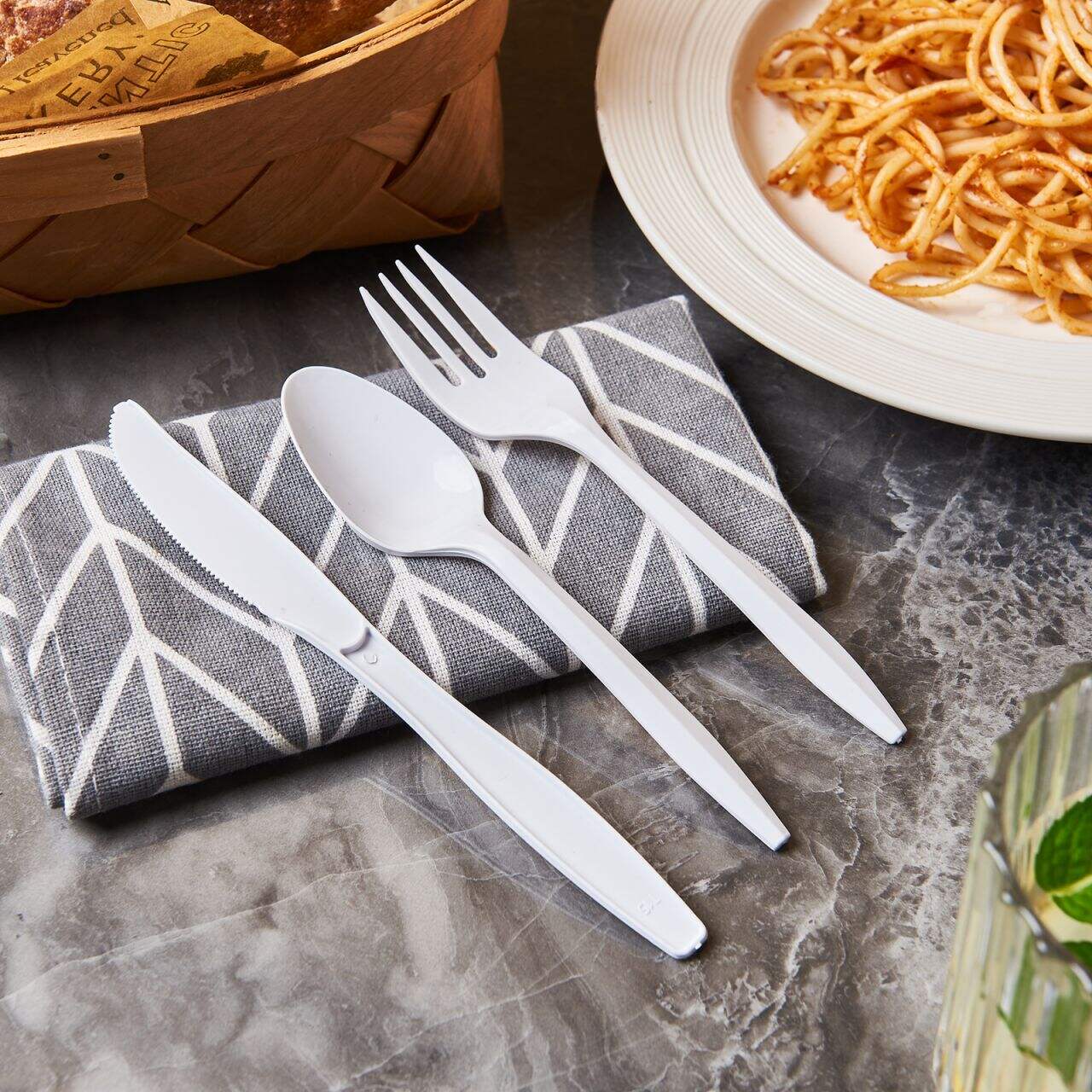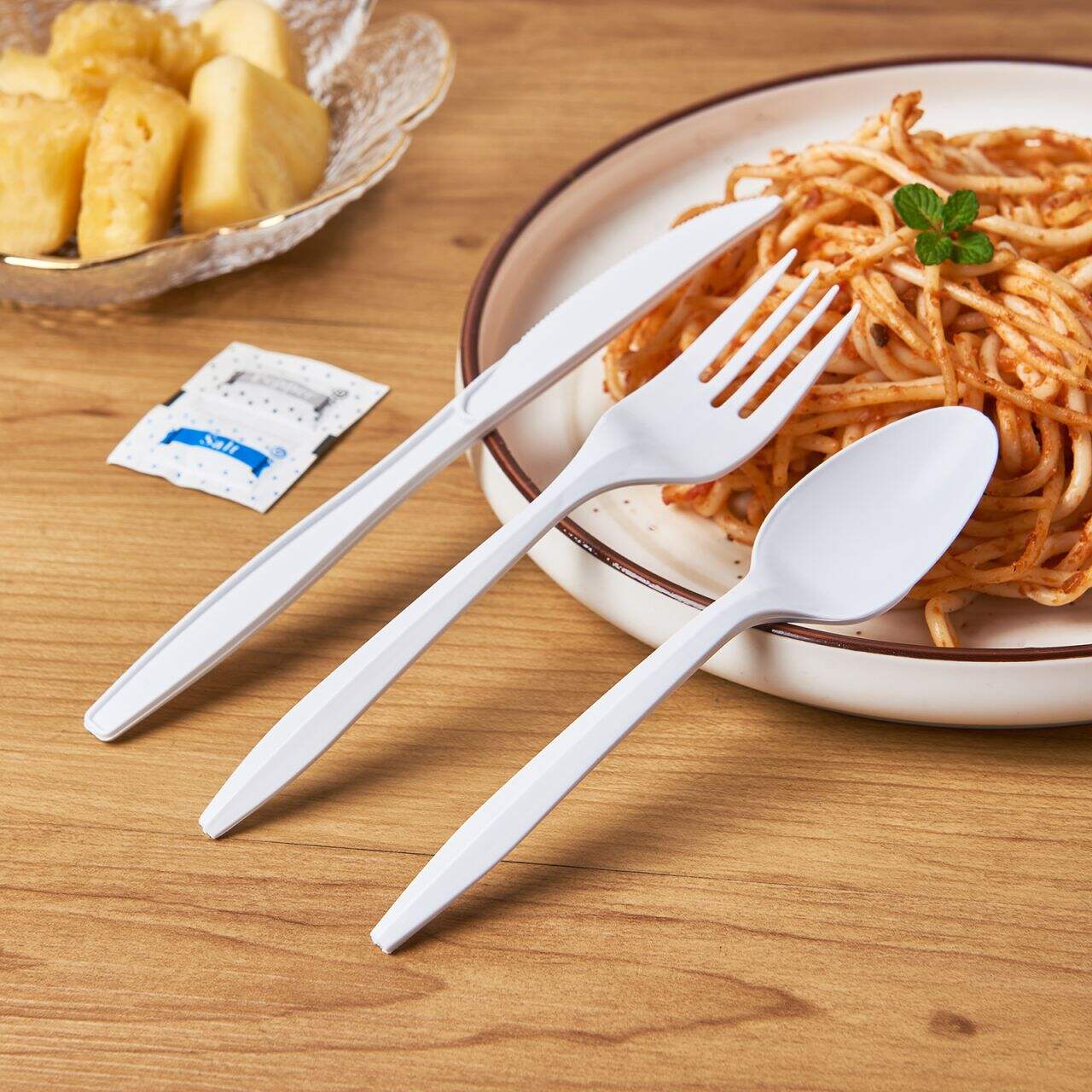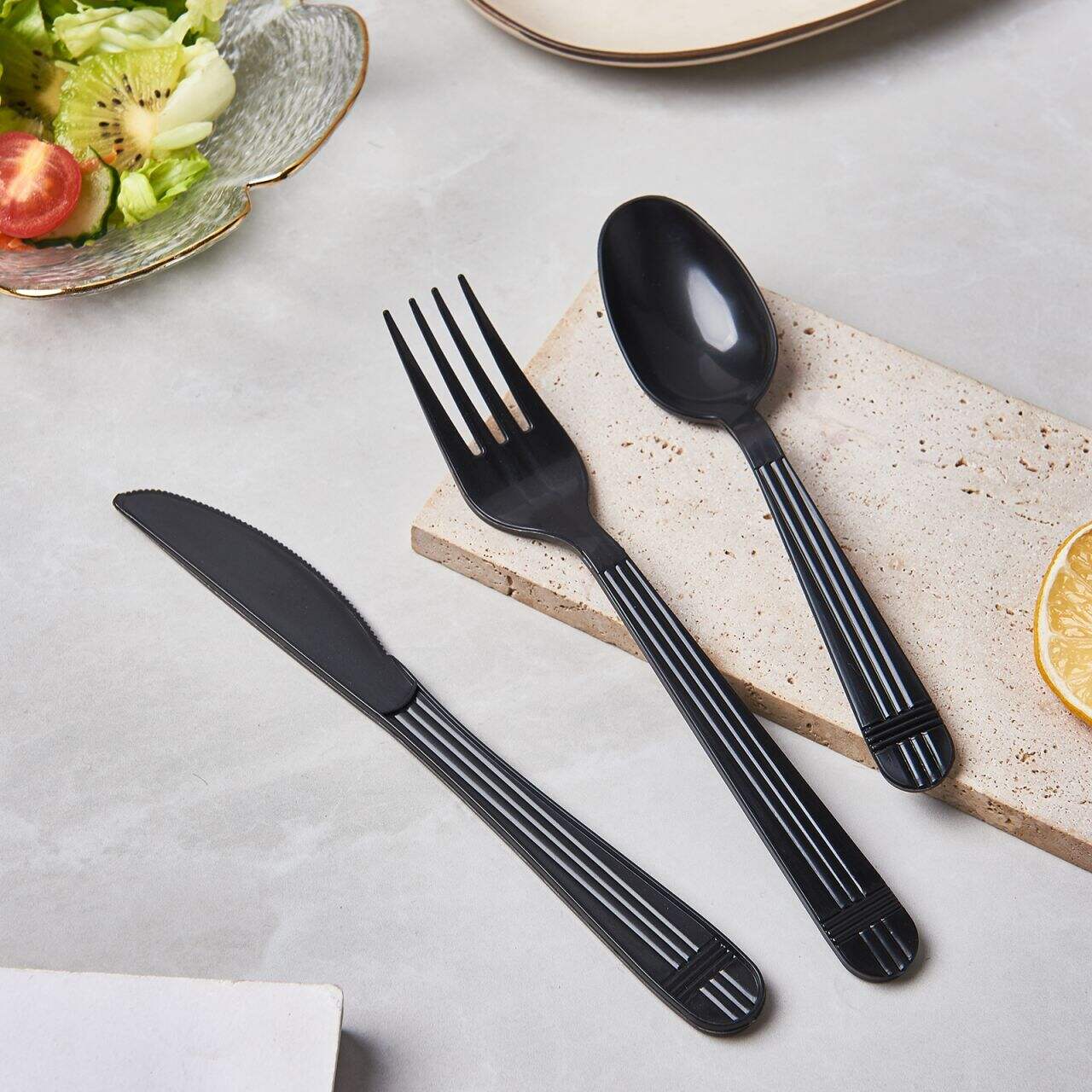These days, most people use forks, spoons, and knives made from single-use plastic. They appear in many places such as fast-food restaurants, picnics and when we order food to take away. Plastic cutlery sets are in high demand because of their ease of use. But did you know that these plastic forks and spoons can harm our planet? They are more than simply benign eating devices. Now let’s learn more about their impact on the environment and consider better choices we can make to help protect our world.
Disposable plastic utensils were invented a long time ago, in the early 1900s. But they didn't catch on until the 1960s, when scores of folks dusted them off. In the months since then, many have opted to use plastic forks and spoons instead of metal ones. Why? Because the nomads are easy to use, lighter to carry, and cost less money. You can find plastic cutlery in just about every fast-food restaurant and grocery store today. They are everywhere!
While plastic cutlery is super useful and definitely does help us out in our busy lives, it can be as bad for the environment as you can imagine. To start with, these cutlery is generally made from an unsustainable resource such as petroleum ( oil ). That means we are not able to easily replace it when it is depleted. It creates a lot of gases which may harm climate patterns leading to things like global warming while making plastic cutlery.
Secondly, the forks and spoons are disposable plastic, intended for use only once. We toss them away after we eat. But in nature, they can take centuries to decompose. They disposed of this for a long time and it can pollute our surroundings and can harm animals who live there. Plastic, like many kinds of sea animals, such as fish and turtles, can be confused for food. It can be extremely detrimental and even deadly for them to consume plastic.

It starts with taking oil from the ground, just to make that disposable plastic cutlery. Oil is processed into plastic, and the plastic is shaped into forks, spoons and knives. Once it is made, the plastic cutlery heads off to all the stores where we buy them. Once we finish eating, these utensils typically end up in landfills, where they will be dumped, burned, or even deposited in oceans or rivers. They can live for years in these natural areas, and they have the potential to wreak havoc on the local environment and local wildlife.

We can take several basic steps to mitigate the damage caused by plastic cutlery. Up first we can find the way to to use metal forks, spoons, and knives, instead of plastic. We can wash and use metal cuttery many times, that is why it is a more preferable option. This allows us save money, and is far kinder to our planet. Some restaurants are also making use of new plant-based alternative cutlery - those that can be produced from bamboo or corn starch, for example. These materials are less harmful to the environment because they are easier to decompose when discarded.

When we seek out better options, we should select products certified by forest-focused groups, such as the Forest Stewardship Council (FSC). These groups ensure that the products are from forests that are sustainably managed and environmentally friendly. This also matters because it allows us to tell if we are taking decisions while avoiding harm to nature.